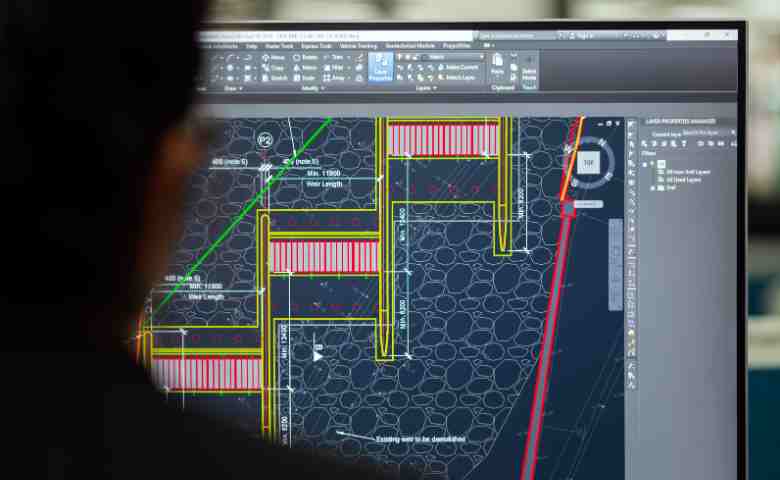Last Updated on April 25, 2025 by Admin
Landing your first civil-engineering job feels like standing on the edge of a massive bridge you helped design—exhilarating and slightly terrifying. Suddenly, the classroom diagrams are 1:1 scale, senior engineers assume you understand the site jargon, and hundreds of workers look to you for instructions. In this whirlwind, small mistakes can erode credibility, delay promotions, or—worst—trigger costly safety incidents.
ConstructionCareerHub App is LIVE — built ONLY for construction careers. Don’t apply with a weak resume.
Get ATS-ready Resume Lab + Interview Copilot + Campus Placement Prep (resume screening, skill gaps, interview readiness) — in minutes & Other advanced features.
Explore Smarter Construction Career Tools →Quick check. Big impact. Start now.
This guide distills first-hand stories, recruiter feedback, and on-site observations into an actionable playbook. By the end, you’ll know the classic traps every fresher falls into, the soft skills that matter in 2025, and the quick wins that set you apart before your first appraisal.
Table of Contents
1. Ignoring Site Safety Protocols
Why It Happens
Many freshers treat safety inductions as a box-checking ritual: watch a 20-minute video, sign a form, grab a hard hat (if someone reminds you). Add peer pressure to “tough it out,” and it’s easy to leave goggles behind “just for a minute.”
Real-Life Story
Rohit, a new site engineer in Gujarat, skipped reinforced-toe boots because the vendor hadn’t delivered his size. A misplaced rebar pierced his shoe, sidelining him for four weeks and forcing his project lead to reshuffle manpower. “I lost the trust of my supervisor before I’d even learned the mix design,” he recalls.
Key Takeaways
- Always wear full PPE—even during quick photo-walks.
- Respect barricades, lock-out/tag-out systems, and hazard signage.
- Bookmark the latest OSHA Safety Guidelines for ready reference.
Pro tip: Keep a personal PPE checklist in your phone. Tick it before stepping onto any active zone.

2. Not Asking Questions or Seeking Clarification
The Curiosity Gap
University labs rarely replicate the muddiness, weather delays, or contractor politics that color real projects. Assuming you “should already know” and staying silent can snowball into expensive mistakes.
Cautionary Tale
A fresher at a metro-rail job misread the benchmark level and set out formwork 75 mm high. The error cost a day’s concrete pour and a ₹ 1.8 lakh rework bill. All because he nodded instead of saying, “Can we re-verify the reference line?”
Practical Tips
- Adopt a beginner’s mindset. Ask why as often as how.
- Repeat critical instructions back to the senior to confirm understanding.
- Shadow the surveyor for a day—you’ll pick up nuances no textbook covers.

3. Overlooking the Importance of Documentation
More Than “Paperwork”
Daily Progress Reports (DPRs), Measurement Books (MBs), site diaries, and request-for-inspection (RFI) logs form the audit trail that protects both the company and the engineer.
Common Fresher Myths
| Myth | Reality |
|---|---|
| “I’m here to build, not write.” | No DPR = no proof of your productivity. |
| “Data entry can wait till Friday.” | Delayed entries invite memory gaps and billing disputes. |
Action Items
- Fill DPRs before leaving the site—even if it’s midnight.
- Photograph critical stages (rebar, formwork, slump test) and attach to reports.
- Cross-reference MB entries with BOQ line items to avoid quantity mismatches.
Explore and Prepare for: Civil Site Engineer Interview Questions & Answers

4. Poor Communication with Senior Engineers and Laborers
Soft Skills ≠ Optional
2025 job ads increasingly mention “stakeholder coordination” alongside AUTO-CAD skills. Clear, respectful dialogue prevents errors and builds trust down the chain of command.
Dos and Don’ts
Do
- Use simple, vernacular language when instructing laborers.
- Confirm verbal orders via WhatsApp or email to create traceability.
- Show gratitude publicly; correct privately.
Don’t
- Blame labor for design errors—own the fix first.
- Use jargon to impress—clarity beats complexity.

5. Not Understanding Drawings and BOQs Properly
Drawings Are Your Map
Good-for-Construction (GFC) drawings evolve rapidly after tender. Failing to track revisions can cause structural clashes or procurement chaos.
Beginner Tips
- Print out the latest revision, highlight clouds/mark-ups.
- Cross-check BOQ item numbers against drawings weekly.
- Verify dimensions in the field with a laser measure—don’t eyeball.
Example: A fresher at a commercial tower trusted a superseded drawing. 18 columns had incorrect starter bars, delaying the slab cycle by two weeks.

6. Trying to Impress Rather Than Learn
Overpromising Is a Hidden Career Poison
Eager to showcase initiative, freshers often volunteer for tasks beyond their competence, like Rohini, who agreed to oversee a night-time concrete pour. She missed slump-loss checks, leading to honeycombing and a costly core-cut.
Solution: Pair every new responsibility with a learning partner—a senior mason, QA inspector, or scheduler who reviews your plan before execution.
7. Ignoring the Power of Networking and Mentorship
Your First-Year Mentor
A mentor accelerates learning, shields you from politics, and introduces you to niche roles (think geotechnical analyst or digital-twin coordinator).
How to Find One
- Attend company toolbox talks; linger for five minutes to ask follow-up questions.
- Volunteer for cross-functional tasks where seniors notice you.
- Connect on LinkedIn with a personalized note referencing a shared project challenge.
8. Not Updating Technical and Software Skills Alongside Work
The “Excel-Only” Trap
Site pressure can freeze learning curves. Yet BIM, scheduling AI, and cloud collaboration tools are now baseline expectations.
Must-Learn Software in 2025
- AutoCAD & Civil 3D – still the industry lingua franca.
- Revit & Navisworks – clash detection and 4D simulation.
- MS Project / Primavera P6 – scheduling and earned-value basics.
- Advanced Excel site templates—pivot tables, look-ups, macros for BOQ tracking.
Internal read: Top 23 Civil Engineering Software You Must Learn
Time-block 3 hours weekly after the site to practice tutorials or take micro-courses.

9. Not Being Punctual or Underestimating Time Management
Why Time = Money on Site
Concrete trucks wait, tower cranes rent by the hour, and rebar crews idle if front teams slip. A late engineer can cascade into six-figure overruns.
Quick Wins
- Reach site 30 minutes before the morning briefing—review the day’s pour sequence.
- Use simple Gantt charts to track personal tasks.
- Sync material deliveries with casting schedules to avoid stacking.
10. Avoiding Feedback and Becoming Defensive
Ego vs. Growth Mindset
Critiques are uncomfortable, but early career is the cheapest time to course-correct.
Feedback Framework
- Listen fully. No interruptions.
- Paraphrase the feedback to confirm understanding.
- Design an action plan (e.g., “I’ll shadow QA during three pours to improve checks”).
- Follow-up after implementing changes.
Bonus: Most Valuable Soft Skills for Civil Engineering Freshers in 2025
| Skill | Why It Matters | Quick Practice |
|---|---|---|
| Communication | Bridges gap between design & execution | Daily stand-ups |
| Teamwork | Complex builds need inter-disciplinary cooperation | Rotate through departments |
| Adaptability | Tech & codes evolve yearly | Monthly upskill goals |
| Critical Thinking | Prevents copy-paste mistakes | “5 Whys” root-cause analysis |
| Conflict Resolution | Site disputes stall progress | Active listening, mediation |
Quick Checklist: On-Site Dos and Don’ts
Do
- Wear full PPE at all times.
- Verify rebar placement before every pour.
- Build rapport with foremen and skilled labor.
- Log daily progress and photos.
- Clarify doubts immediately.
Don’t
- Use your phone while cranes are operating.
- Rely solely on laborer measurements—double-check.
- Skip toolbox talks or inductions.
- Hide errors—report and rectify.
(Save this list as your phone wallpaper for the first three months.)
Final Thoughts
Mistakes are inevitable, but preventable when you know the playbook. Treat every misstep as feedback data, journal weekly learnings, and revisit this guide before each new phase of your project lifecycle. With awareness and humility, your first year will become a launchpad—not a stumbling block—toward a thriving civil-engineering career.
Frequently Asked Questions (FAQs)
What should a fresher civil engineer expect in their first job?
A fresher civil engineer should expect a steep learning curve filled with early-morning site meetings and hands-on responsibilities from day one. The role often involves managing documentation, coordinating with teams, and supervising on-site activities—all at once.
How do I succeed as a fresher site engineer?
To succeed, focus on mastering the basics such as safety protocols, reading technical drawings, and maintaining accurate documentation. Develop soft skills like effective communication and adaptability, and actively seek mentorship and feedback to improve continuously.
Can soft skills impact my career in civil engineering?
Yes, soft skills play a critical role in career advancement. In 2025, employers increasingly value collaboration, negotiation, and critical thinking just as much as technical skills when making decisions on promotions and leadership roles.


